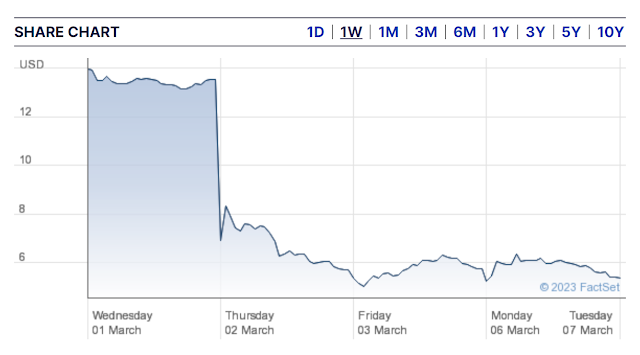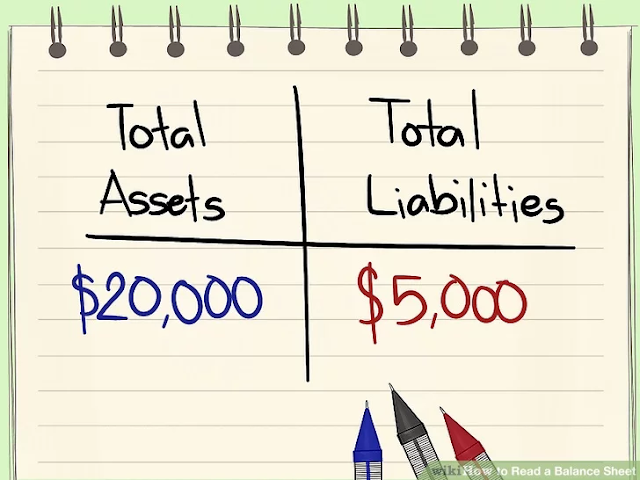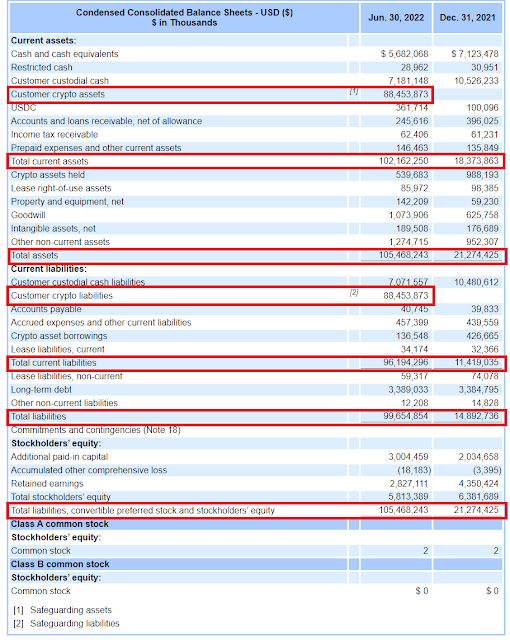Lessons from the disaster engulfing Silvergate Capital

This is the story of a bank that put all its eggs into an emerging digital basket, believing that providing non-interest-bearing deposit and payment services to crypto exchanges and platforms would be a nice little earner, while completely failing to understand the extraordinary risks involved with such a venture. On 1st March, Silvergate Capital Corporation announced that filing of its audited full-year accounts would be significantly delayed , and warned that its financial position had materially changed for the worse since the publication of its provisional results on January 17th, when it reported a full-year loss of nearly $1bn. The stock price promptly tanked, falling 60% during the day: Platforms, exchanges and other banks halted or re-routed transactions on Silvergate's SEN payments network, and customers that had other banking relationships removed their deposits. In response, Silvergate halted the SEN network. A banner on its website now reads: Effective i...

